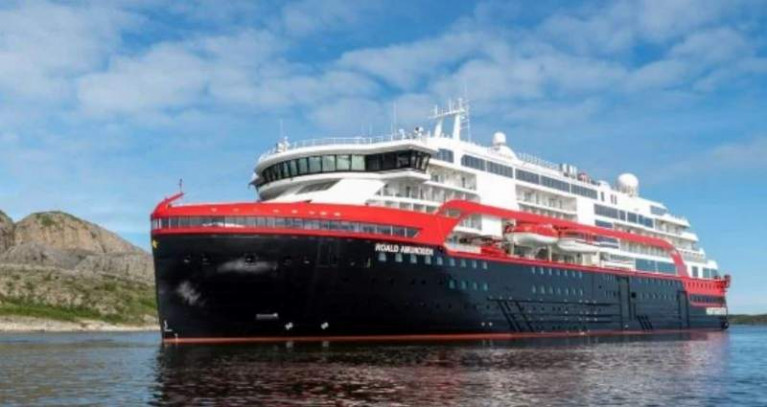Displaying items by tag: 'Cruise' from Svalbard
Crew Test Positive for Virus on Norwegian Cruiseship (Second Sister Having Called to Belfast in March)
Crew members, reports RTE News, numbering at least 36 have been confined on a Norwegian cruise ship to have tested positive for coronavirus, the company Hurtigruten said on Saturday.
Arriving at the northern Norwegian port of Tromso from the archipelago of Svalbard, the crew of the MS Roald Amundsen was quarantined on board the ship yesterday after four staff members tested positive for the virus and were hospitalised.
Of the 158 crew members on board, 36 are infected, Pal Jakobsen, media officer for the city of Tromso, told AFP, confirming a development that raises fears of a resurgence of cases in Norway.
The ship's company Hurtigruten had earlier indicated 33 positive tests. The infected crew were all Filipino apart from three people from France, Norway and Germany.
The company said yesterday that four crew members "were isolated several days ago because of other disease symptoms, with no symptoms of Covid-19".
"There was no reason to suspect Covid-19 when the ship docked in Tromso based on the symptoms they were showing," Hurtigruten said. For more click here.
Afloat.ie adds MS Roald Amundsen, leadship of a pair of the world's first hybrid-powered ships (see: second ship as Belfast Harbour's only caller) was originally scheduled to visit Waterford early next month. The 6-day 'British Isles-Enchanting Islands & Coastal Towns' cruise however will not include the call of the 2019 built cruiseship to the south-east Irish port.
The cancelled call to Ireland's oldest city, follows the Government's Covid-19 transport measures which among travel restrictions issued in late March and updated last month stipulated: All scheduled cruise ship travel has ceased. The National Health and Emergency Planning Team agreed that no cruise ship will be permitted to enter any Irish port or anchor in domestic waters.
As above the call to Belfast Harbour by the second hybrid-ship, MS Fridtjof Nansen in early March made a successful visit, though subsequently this year's newbuild did not involve a next port of call to Dublin Port.
Only one cruiseship Afloat adds has made visits to Irish ports this season, Saga Cruises veteran vessel Saga Sapphire which was on a farewell cruise for the UK operator when calling to Dublin Port on 11 March.
Two days later the former Hapag-Lloyd cruises custom-(1981) built Europa arrived to Cork Harbour where the ship's passengers were given a clean bill of health at Ringaskiddy.





























































